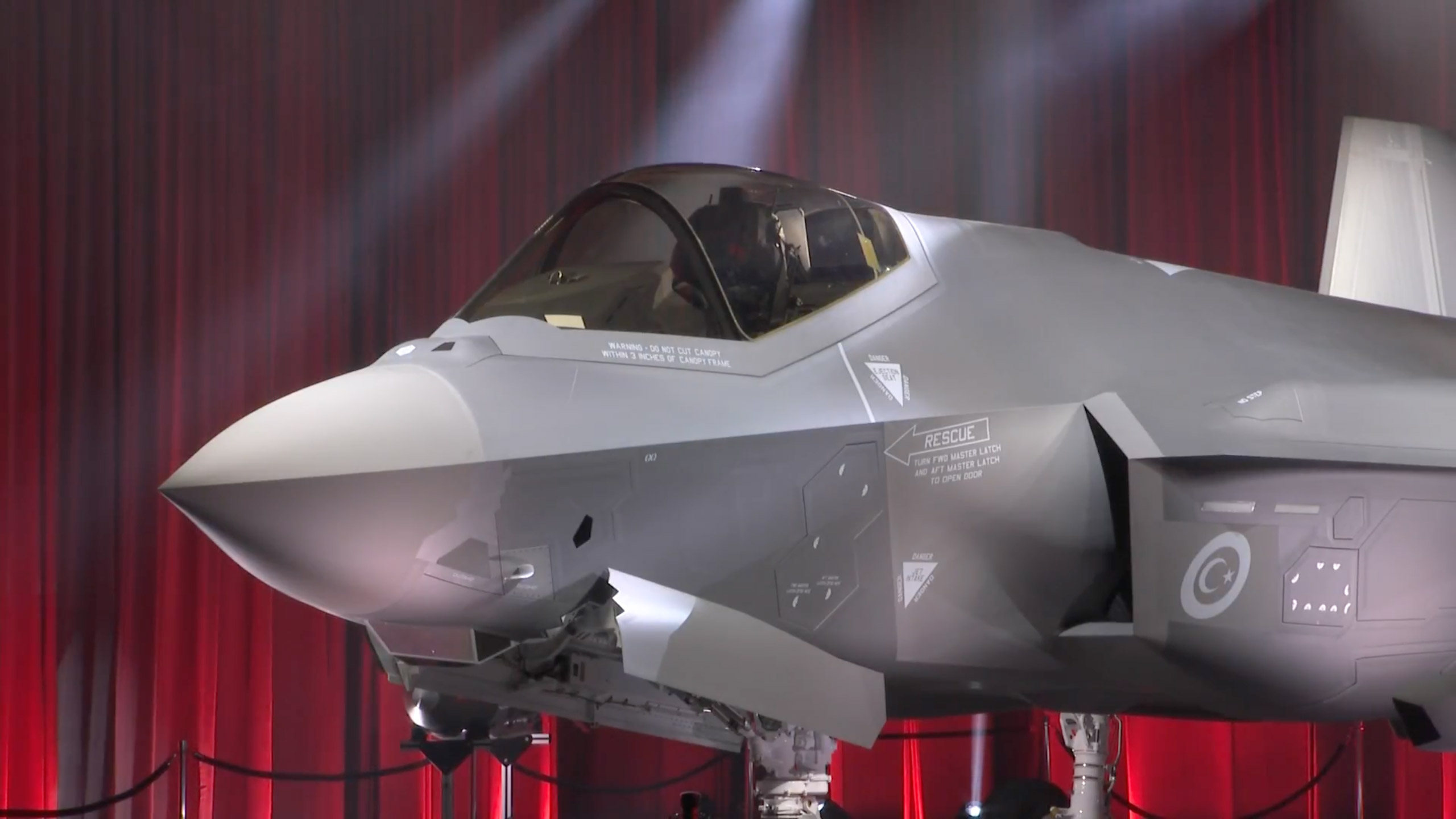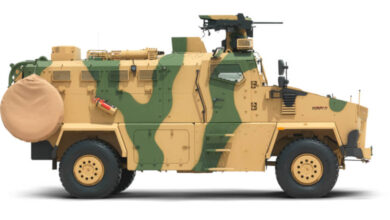Trump could block F-35 fighter transfer if Turkey acquires Russia’s S-400 system
Assistant Secretary of State Wess Mitchell warns that acquisition of S-400 air defense system will 'qualitatively' change US-Turkey relationship
The Trump administration could block the transfer from the United States of F-35 stealth jets to NATO ally Turkey if Ankara acquires Russia’s S-400 air defense system without the need for an act of Congress, a senior official said.
Last week, Lockheed Martin held a roll-out ceremony for the delivery of a Turkish F-35 in Texas, but Assistant Secretary of State for European and Eurasian Affairs Wess Mitchell warned the program could still be halted.
Turkey’s first four F-35 Joint Strike Fighters will remain on U.S. soil in Arizona while Turkish pilots and maintainers are trained, and Mitchell told a Senate Foreign Relations subcommittee hearing on U.S. relations with Europe this gives the State Department time to intervene.
“In this program the U.S. maintains custody of aircraft until they are transferred. That normally occurs after a lengthy training process,” Mitchell told the Senate Foreign Relations committee on Tuesday, June 26.
“We believe that we have existing legal authorities that would allow us to withhold transfer under certain circumstances, including national security concerns,” he said.
“Given that, we believe that we continue to have time and ability to assure that Turkey does not move forward on S-400 before having to take a decision on F-35.”
Turkey’s purchase of the S-400 would put it in breach of U.S. sanctions aimed at hampering Russia’s defense exports.
Mitchell said the U.S. had been clear that “an acquisition of S-400 will inevitably affect the prospects for Turkish military-industrial cooperation with the United States, including F-35s.”
“We can’t be any clearer in saying, both privately and publicly: a decision on S-400s will qualitatively change the U.S.-Turkish relationship in a way that would be very difficult to repair.”
Washington will make judgement when S-400 is delivered to Turkey
Turkey’s President Recep Tayyip Erdogan was re-elected at the weekend with dramatically increased powers, as the country moves from a parliamentary to an executive presidential system.
His administration is in dispute with the U.S. on a number of issues, including its repeatedly stated intention to deploy Russia’s S-400 Triumf air and missile defense system. The two countries signed a deal to purchase the S-400 system in September when Ankara made an advance payment.
Concerns have been raised by Turkey’s NATO allies about data security with the S-400 system, particularly around the F-35. Turkey’s Undersecretariat for Defence Industries (SSM) wants to connect the F-35 systems with the Turkish Air Force information network, HvBS. If the S-400 is also connected to the HvBS, there is a risk that data collected by the advanced Joint Strike Fighter’s sensors may end up being transmitted to Russia.
Mitchell told lawmakers that the administration would make a judgement “when there’s actual delivery of the technology.”
In April, Turkish Defence Industries undersecretary Ismail Demir said that Turkey will receive S-400s from Russia in July 2019, although an unnamed source told Tass that the systems would not be delivered until October 2019, a schedule remarkably similar to that of the transfer of F-35s to Turkey, and apparently setting a solid timeframe for action by the Trump administration.
Turkey has already ordered 30 F-35s out of a possible purchase of 100, with delivery of four scheduled to be complete in March 2019. The state-run Anadolu news agency reported that two further aircraft will be sent directly to Turkey in November 2019, although Foreign Minister Mevlut Cavusoglu said that the “arrival of the jets in Turkey will be in 2020.”

Senate moves to block F-35 transfer
Last week, the U.S. Senate passed a version of the National Defense Authorization Act that includes an amendment prohibiting F-35 sales to Turkey unless President Donald Trump certifies that Turkey is not threatening NATO, purchasing defense equipment from Russia or detaining U.S. citizens on “unjust” charges under Erdogan’s state of emergency.
However, the bill must be reconciled with version passed by the House of Representatives and then passed by both chambers before it can be signed by Trump and become law.
But Mitchell said Trump’s administration already has the powers its needs under existing sanctions laws.
Mitchell’s testimony raises a number of questions surrounding the clearly controversial relationship with Turkey and with the F-35 in particular.
Is the administration angling for the Senate to drop the amendment, giving Trump’s State Department the sole discretion in whether to transfer the aircraft to Turkey?
Is it doing this to remove a potential stumbling block in the passage of the much-vaunted (by the administration at least) National Defense Authorization Act by both houses of Congress?
Or is the administration aiming simply to kick the can, hoping to find a way to keep Turkey, Russia, the Pentagon, U.S. defense industry giants and myriad other interested parties onside?
But there some further questions that doesn’t seem to get much airtime outside Turkey.
Turkish companies produce a significant number of component parts for F-35s, from airframes to engines to the cockpit display.
If the U.S. won’t transfer the finished planes to Turkey, will Turkey transfer components to the U.S.?
With reporting from AFP













If the US renags on original deal regarding F35 delivery, an already tremendously delayed and overbudget program it will have consequences not only on the F35 program but any other multi-nation joint development programs. The damage wont be limited to Turkey as a precedent will be set regarding the US’s understanding its credibility. Even worse it will lock in the world’s definition of Americas understanding of what an ally means.